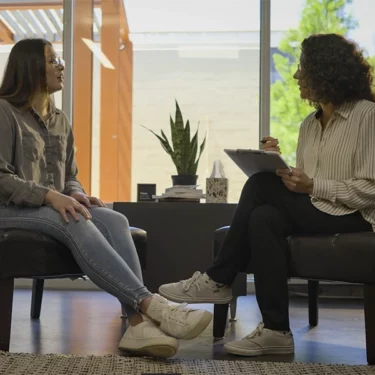June 2021 marks 20 years of celebrating Pride Month for me. In reflecting on these two decades, I – and our society – have grown in understanding the complexities of our lesbian, gay, bisexual, transgender and queer (LGBTQ+) communities. Personally, I have grown to not only recognize my identities, but to embrace where they intersect and share that with my family and communities. I am also able to bring my identities into my profession, as well.
At the National Council for Mental Wellbeing, I direct policy and advocacy for our federal and state efforts on Certified Community Behavioral Health Clinics (CCBHCs). I am also leading our internal and external efforts to ensure LGBTQ+ perspectives are reflected in all areas of the National Council’s work. This additional component of my job feels like my career has “gone full circle.”
In 2006, I began my career in policy at the Triangle Foundation (now, Equality Michigan), an LGBTQ+ direct service and advocacy organization, to support grassroots advocacy in Michigan on several policies, specifically Matt’s Law. This anti-bullying legislation was aimed at reducing the rising rates of mental health and substance use challenges in children and youth – including, but not limited to, those who are or are assumed to be LGBTQ+ – to prevent deaths by suicide.
The bill passed in 2011, and as of 2015, there are now anti-bullying policies in all 50 states with additional state-based policies aimed at eliminating bullying online (cyber bullying), as well. While these policies are a huge win to promote safe spaces in schools, our education system is just one system within our state and federal governments, and bullying is only one component that may affect mental health and substance use challenges for all children and youth, including those who are LGBTQ+.
The COVID-19 pandemic is affecting the mental wellbeing of all Americans. The Centers for Disease Control and Prevention (CDC) has estimated at least a 36% increase in the demand for treatment of mental health conditions (anxiety and depression), resulting in increased substance use and other harms. Moreover, suicidal ideation doubled from 2018 (10.7% in 2020 from 4.3% in 2018).
Research shows a far deeper impact for LGBTQ+ persons according to The Trevor Project, a national LGBTQ+ youth suicide prevention organization. Their recent report identified that nearly three out of four LGBTQ+ youth (72%) reported symptoms of generalized anxiety disorder in the past two weeks, with higher rates for transgender youth. Almost half of all LGBTQ+ youth (42%) seriously considered death by suicide in the year, again, with even higher rates for transgender youth.
The National Council is working alongside policymakers, organizations and clinical providers to better link our systems – public health, education and beyond – to adapt to these constantly growing needs for mental health and substance use care for LGBTQ+ children, youth and adults. Here are three programs to accomplish these growing demands:
- CCBHC: A national model for mental health and substance use care delivery with a funding mechanism that allows CCBHCs to adapt to their communities’ needs in a nimbler way than other provider types. Not only does the model seek to increase the quality of care within the clinics, but it can deliver and coordinate care outside the clinic, as well, including within schools. The State of New York identified a 24% increase in care for children and youth through embedding CCBHC staff into schools.
- 9-8-8: The mental health and substance use alternative to 9-1-1 is 9-8-8. This recently passed federal program, which converts the National Suicide Hotline to the three-digit number, seeks to ensure that all states have a statewide 9-8-8 infrastructure by July 2022 to reduce the burden on law enforcement and more quickly connect people to mental health and substance use services. A May 2021 Congressional Briefing on 9-8-8 identified multiple locations that are providing telehealth care, including crisis care, for children and youth. This includes texting for youth who may not be able to verbalize their needs at home or school.
- Mental Health First Aid (MHFA): MHFA is a training and education program offered through the National Council that is designed to help identify – and usher to care – people who may have a mental health or substance use need. There is now a teen-focused effort: tMHFA, an evidence-based training program that teaches students in grades 10-12 how to identify, understand and respond to signs of mental illnesses and substance use disorders among their peers.
For Pride Month this year, I am not only proud of my LGBTQ+ identity and community. I am proud of my organization and the programs we are championing to change care delivery systems and our cultures to increase access to care and save lives.
Want to examine new interventions for – and drive conversations that will improve care within – the LGBTQ+ population? Join our free Interest Group for resources, conversations and networking!
Guest Author
Director of Public Policy and Advocacy



